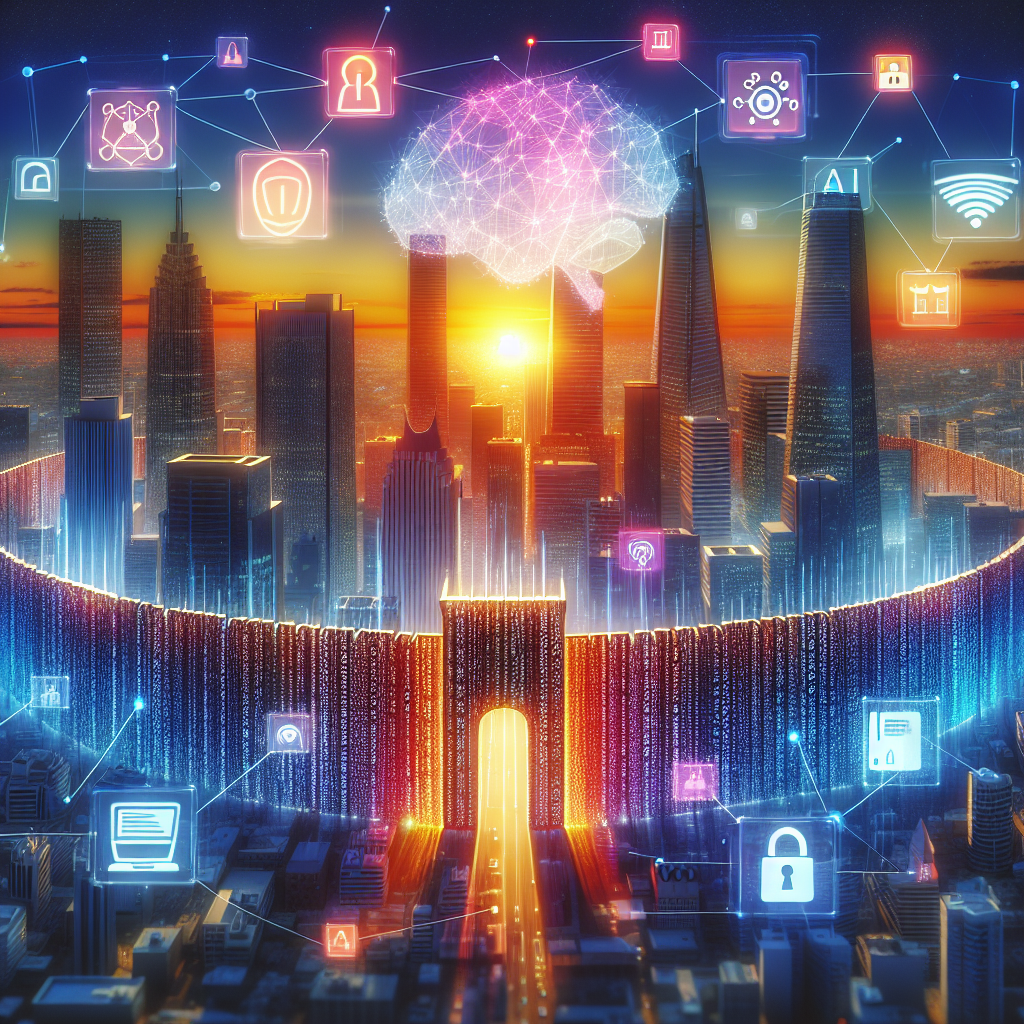The AI revolution in cybersecurity has brought about significant changes in the way businesses protect their valuable data and systems. As cyber threats continue to evolve and become more sophisticated, traditional security measures are no longer sufficient to combat them. This is where artificial intelligence comes in, offering businesses a powerful tool to detect and respond to threats in real-time.
What is AI in cybersecurity?
AI in cybersecurity refers to the use of artificial intelligence technologies, such as machine learning and deep learning, to enhance the security of digital systems and data. These technologies enable automated threat detection, response, and prediction, allowing businesses to stay ahead of cyber threats and protect their sensitive information.
How does AI improve cybersecurity?
AI improves cybersecurity in several ways:
1. Automated threat detection: AI-powered systems can analyze vast amounts of data in real-time to detect abnormal behavior and potential threats. This enables businesses to identify and respond to cyber attacks quickly, reducing the risk of data breaches.
2. Predictive analytics: AI algorithms can analyze patterns and trends in data to predict potential cyber threats before they occur. This proactive approach helps businesses prevent attacks and strengthen their security defenses.
3. Enhanced incident response: AI technologies can automate the incident response process, enabling businesses to quickly contain and mitigate the impact of a cyber attack. This reduces downtime and minimizes the financial and reputational damage caused by security breaches.
4. Adaptive security measures: AI-powered systems can adapt to changing cyber threats and adjust security measures accordingly. This flexibility allows businesses to stay one step ahead of cybercriminals and protect their data effectively.
What are the challenges of using AI in cybersecurity?
While AI offers significant benefits in improving cybersecurity, there are also challenges that businesses need to address:
1. Data privacy: AI systems require large amounts of data to function effectively, raising concerns about data privacy and security. Businesses need to ensure that they comply with data protection regulations and safeguard sensitive information.
2. Bias and discrimination: AI algorithms can be biased and discriminatory if they are trained on biased data sets. Businesses need to be aware of these risks and implement measures to prevent bias in their AI-powered cybersecurity systems.
3. Complexity: AI technologies can be complex and require specialized skills to implement and manage. Businesses need to invest in training and resources to effectively leverage AI in cybersecurity.
4. Cost: Implementing AI-powered cybersecurity solutions can be expensive, especially for small and medium-sized businesses. Companies need to weigh the costs and benefits of AI and determine if it is a worthwhile investment for their organization.
What does the future hold for AI in cybersecurity?
The future of AI in cybersecurity looks promising, with continued advancements in technology and increased adoption by businesses. AI-powered systems will become more sophisticated and effective at detecting and responding to cyber threats, helping businesses stay secure in an increasingly digital world.
FAQs
Q: Can AI completely replace human cybersecurity professionals?
A: While AI can automate many cybersecurity tasks, human professionals are still essential for managing and overseeing security operations. AI can augment the capabilities of human professionals, but it cannot completely replace their expertise and judgment.
Q: How can businesses integrate AI into their cybersecurity strategy?
A: Businesses can integrate AI into their cybersecurity strategy by investing in AI-powered security solutions, such as intrusion detection systems, threat intelligence platforms, and security analytics tools. They can also leverage AI for incident response, threat hunting, and vulnerability management.
Q: Is AI cybersecurity foolproof?
A: While AI can significantly enhance cybersecurity defenses, it is not foolproof. Cybercriminals are constantly evolving their tactics and techniques to bypass AI-powered security measures. Businesses need to continually update and enhance their security strategies to stay ahead of emerging threats.
Q: What are the ethical considerations of using AI in cybersecurity?
A: Ethical considerations of using AI in cybersecurity include issues such as data privacy, bias, transparency, and accountability. Businesses need to ensure that their AI-powered security systems comply with ethical standards and regulations to protect the rights and interests of individuals and organizations.
In conclusion, the AI revolution in cybersecurity presents exciting opportunities for businesses to enhance their security defenses and protect their valuable data and systems. By leveraging AI technologies effectively, businesses can stay ahead of cyber threats, detect and respond to attacks in real-time, and strengthen their overall security posture. However, businesses also need to address challenges such as data privacy, bias, complexity, and cost to maximize the benefits of AI in cybersecurity. With careful planning and implementation, businesses can harness the power of AI to safeguard their digital assets and stay secure in an increasingly connected world.

